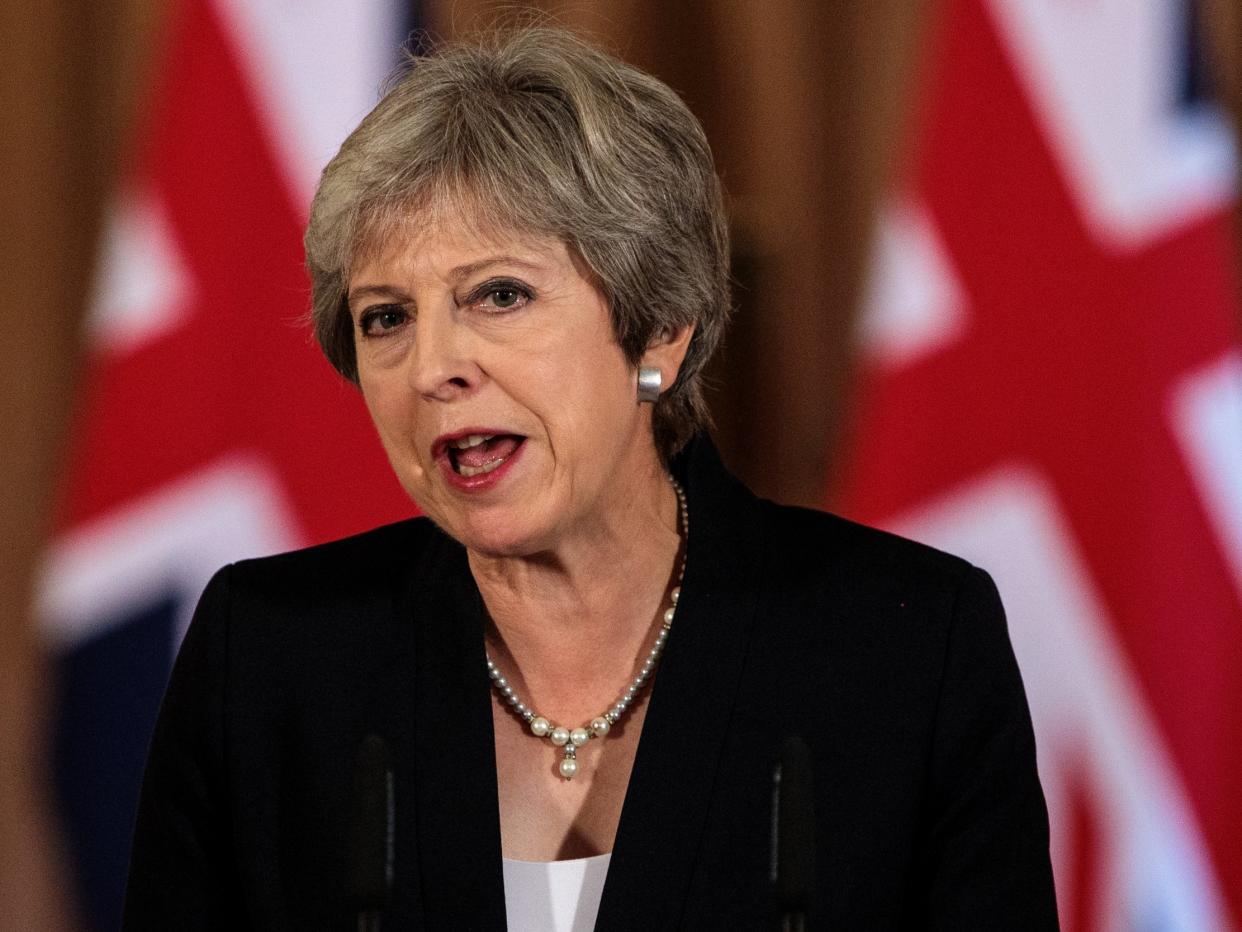Theresa May says Russia and Syria must be held accountable for use of chemical weapons

Russia and Syria must be held accountable for their use of chemical weapons attacks, Theresa May has warned, speaking ahead of a visit to the United Nations during which she is also expected to raise the case of Nazanin Zaghari-Ratcliffe with Iran’s president.
The prime minister called on world leaders to do more to prevent the further use of chemical weapons, as well as hold Russia and Syria to account.
Ms May said the “despicable” attacks in Salisbury and rebel-held areas of Syria are a threat to the international system.
Britain accused Russia of “obfuscation and lies” after the prime suspects in the nerve agent attack on the former spy, Sergei Skripal, and his daughter, Yulia, claimed they visited the UK as tourists.
Alexander Petrov and Ruslan Boshirov were identified by the UK as members of the GRU, Russia’s military intelligence service, but made widely mocked claims they only made the trip in early March to visit the “wonderful town” of Salisbury and its famous cathedral.
Speaking ahead of a visit to the United Nations, Ms May said: ”As we meet in the UN Security Council this week the red lines around the use of chemical weapons are being eroded.
“The Syrian regime has repeatedly used these appalling weapons against its own people while the Russian state has deployed them on UK streets.
“Attacks such as Salisbury and Ghouta are despicable in their own right, but they are also a threat to the wider international system.
“Each time we fail to challenge the use or development of weapons of mass destruction (WMD) it erodes the framework of treaties we have built up so painstakingly over the past few decades.
“We worked closely with our allies on a co-ordinated response to Russia’s use of chemical weapons in Salisbury, resulting in 28 countries as well as Nato joining us in expelling a total of over 150 Russian intelligence officers, the largest collective expulsion ever.
“But the international community needs to do more together, both to prevent future chemical weapons use and to ensure those who use them are held to account, but also to tackle the range of other threats to global security, including the proliferation of WMD.”
During her visit, Ms May will hold a series of meetings with her international counterparts including Iran’s president, Hassan Rouhani. The prime minister is expected to discuss the case of Ms Zaghari-Ratcliffe, the British-Iranian charity worker jailed in Tehran on charges of spying, which she denies.
Ms Zaghari-Ratcliffe recently shared an open letter with The Independent in which his wife told him she was so upset about returning to Evin Prison after a recent three-day release she “wished she had never been released”.
“Nazanin called me on Tuesday – one of our toughest conversations,” her husband wrote. “She wished she had never been released. She said she felt like one of the radical Islamists’ captives – as though she had been paraded on the balcony then hidden back away.
“After that call, Nazanin collapsed, the result of two panic attacks. She still has numbness in her legs. She was taken by ambulance to the Evin hospital.”
Ms May is also scheduled to meet with Donald Trump on Wednesday evening, to push for a post Brexit trade deal with the US.
Such a trade deal is considered an important way to help offset the economic impact of leaving the EU in March next year.
Any supportive comments from Mr Trump could boost Ms May’s struggle to win over critics, who argue her exit plan is unworkable.
During a visit to Britain earlier this year, Mr Trump said the two countries could secure a “great” post-Brexit trade deal, lavishing praise on Ms May and contradicting his own earlier withering assessment of her exit strategy.
Additional reporting by agencies

 Yahoo News
Yahoo News 
